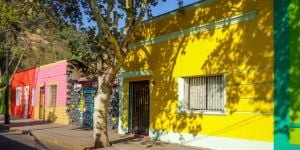
Healthcare in Chile is modern and affordable and is rated as the best in Latin America; yet, it is not without its problems. Data collected by the World Health Organization ranked Chile's health system 33rd out of 190 countries.
Chile's position is similar in ranking and expenditure to Australia and Denmark. Many doctors have been educated abroad and even speak English as so many studies, and medical conventions are conducted in English.
FONASA and Public insurance in Chile
Chile's public healthcare operates as FONASA (Fondo Nacional de Salud), which is a national health insurance plan funded by the mandatory taxation of income at 7% which employers pay for their workers as one of their benefits. The plan allows for care at public hospitals and the option of subsidised rates at specific affiliated private clinics. There are four plans available. Plan A is for indigenous people, those unemployed or making less than minimum wage, those over 60 years old, and those with disabilities or handicaps. This plan essentially offers free healthcare at any public institution.
Plans B, C, and D are based on your income and have varying levels of subsidy. The downside to the system is found at the public hospitals where lines can be long and facilities overcrowded. For example, the wait times can be very long at public hospitals for something such as radiological services. Still, you always have the option to go to a private hospital and pay the subsidised fee if you don't want to wait.
ISAPRE and private insurance in Chile
Chile's private sector is made up of insurance providers known as ISAPREs (Instituciones de Salud Previsional) whose various care plans will dictate which clinics and doctors you will be referred to depending on availability.
The quality of services provided tends to be better at ISAPRE clinics than at public hospitals, but this can also vary from one clinic to another. Finally, some rural hospitals can be a little run down in comparison to those in a larger city.
How to get healthcare in Chile
If you are having a medical emergency in Chile, even smaller towns have hospitals that can transfer you by ambulance if they can't handle your medical needs. For most health issues, however, you will need to make an appointment to see the doctor at your local hospital. There, a general practitioner will recommend you to the appropriate specialist. Family doctors at their own offices are not typical here, and your local hospital can handle most of your needs. For non-emergency needs, you would go to the hospital in the morning to make an appointment to see the doctor that day.
Chile has also implemented a program called AUGE or GES which is an explicit health guarantee for certain conditions that you will receive care within a specified amount of time at a location convenient for you that has pre-established quality requirements, and your ability to pay will not affect the services that you receive. Today, eighty conditions fall under this plan, ranging from brain injury, burns, diabetes, cancer, arthritis, lupus, cystic fibrosis, cataracts, kidney disease and many more. See the link for the complete list.
Hospitals are usually public facilities, while Clinicas are typically private hospitals. Clinica Alemana is the principal private hospital found throughout Chile. Santiago has some excellent private hospitals - Clinica Las Condes and Clinica Alemana de Santiago are the two premier hospitals of Chile.
Useful link:
We do our best to provide accurate and up to date information. However, if you have noticed any inaccuracies in this article, please let us know in the comments section below.











